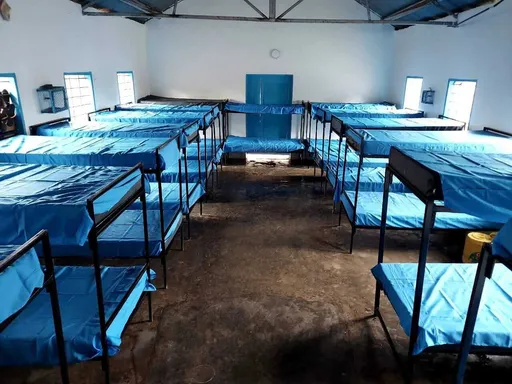By Yahya Habil
It is no secret that the phenomenon of startups has been growing fast becoming quite impactful in Africa over the past few years.
Along with their increase in number, African startups have been challenging prevailing stereotypes about the continent and reshaping perceptions.
More importantly, they have emerged as significant players in African economies, as they have been found to have a positive impact on the economies of several African countries, thus showcasing their potential to propel the continent into an economic powerhouse.
Africa has a youthful population with an entrepreneurial spirit. Approximately 60% of Africa's population is under the age of 25 making Africa the youngest continent in the world. This translates to a significant youth population and highlights the immense potential for youth-led innovation, entrepreneurship, and economic growth in Africa.
In the face of challenges such as unemployment and poverty, some countries have harnessed the youth energy and talent to drive sustainable development giving a beacon of hope to the rest of the continent and ultimately changing the economic landscape.
African startups are generating jobs, tax revenue, and foreign investment, offering hope in the continent. The number of jobs created by funded startups has seen significant growth, demonstrating their positive impact on African economies.
Moreover, these startups are diversifying industries such as energy, agriculture, healthcare, transportation, logistics and labor, contributing to economic growth.
Their impressive revenue generation and ability to attract investment exemplify their potential to drive Africa's GDP and prosperity.
African countries like Kenya, Rwanda, and Nigeria are spearheading the startup revolution on the continent, positioning themselves as thriving hubs of innovation and entrepreneurship.
These countries have witnessed a surge in startup activity, with many of their homegrown ventures attracting significant foreign investments, which ultimately help startups to scale their operations to establish a presence in multiple African countries.
These investments not only provide capital for growth but also bring valuable expertise and networks that contribute to the startups' success.
Kenya, for example, has emerged as a prominent player in the African startup ecosystem. With its fast internet speeds and access to the African market, it has attracted global interest, making it a hotspot for startups.
It now hosts unique start-ups that truly utilize Africa’s special traits. One startup example is M-Kopa Solar, which offers pay-as-you-go solar energy solutions to off-grid customers.
The company has attracted significant foreign investment, with a notable investment of $50 million from the International Finance Corporation (IFC), a member of the World Bank Group.
This investment has helped M-Kopa Solar expand its operations and reach more customers across Kenya and other African countries.
Another example is Twiga Foods, which is a Kenyan agri-tech startup that connects farmers with retailers through its online platform, revolutionising the supply chain for fresh produce.
The company has attracted significant foreign investment, including a $30 million investment led by Goldman Sachs.
This funding has allowed Twiga Foods to expand its operations, improve farmers' access to markets, and streamline the distribution of produce, benefiting both farmers and retailers.
Similarly, Rwanda has created a favorable environment for startups to thrive. By leveraging their unique strengths, such as the government's commitment to fostering entrepreneurship and the country's geographic centrality, Rwandan startups are seizing opportunities to solve pressing challenges and drive innovation across sectors.
This is evident through many startups, such Zipline –a Rwandan startup that operates the world's largest drone delivery network for medical supplies.
The company has received significant foreign investment, including a $190 million investment led by Baillie Gifford, a Scottish investment firm, and Temasek, a Singaporean investment company.
This funding has allowed Zipline to expand its drone delivery services across Rwanda and other countries, providing crucial medical supplies to remote areas.
Kasha is another startup that is a women-specific one, which shows Africa’s immense drive also toward gender equality. It operates an e-commerce platform for women's health and personal care products.
The company has attracted foreign investment, including funding from the International Finance Corporation (IFC) and Finnfund, a Finnish development finance company.
This investment has enabled Kasha to expand its product range, enhance its logistics capabilities, and reach more women with essential health and personal care products.
Last but not least –Nigeria: it is one of the largest economies in Africa and offers a fertile ground for startups. With a burgeoning population, strategic location, and a vibrant tech ecosystem, Nigerian startups have attracted substantial foreign investments, as well.
A prominent example is Andela, which clearly demonstrates the country’s large pool of local skills. It is a startup that specialises in providing skilled African software developers to global tech companies.
The company has attracted significant foreign investment, including a $40 million Series C funding round led by CRE Venture Capital and DBL Partners.
Inspiration beacons
This investment has allowed Andela to scale its operations, train more developers, and expand its reach beyond Nigeria to other African countries.
Kobo360 is also a startup example that shows Africa’s savviness in tackling its own needs. It is a startup that offers an on-demand logistics platform connecting businesses with reliable trucking services.
The company has received foreign investment, including a $30 million Series, a funding round led by Goldman Sachs.
This funding has enabled Kobo360 to expand its fleet, enhance its technology platform, and establish a strong presence in the logistics industry across Africa.
The transformative power of startups in Africa's economic landscape cannot be understated. These innovative ventures have the potential to reshape the continent's future, but their success hinges on overcoming formidable challenges and creating a conducive environment for growth.
Tackling issues such as corruption, ensuring freedom of speech, and improving infrastructure are crucial steps towards unlocking Africa's entrepreneurial potential and fostering sustained economic prosperity.
The impact of current African startups goes beyond economic gains; they also serve as beacons of inspiration, offering hope to a generation and paving the way for a brighter tomorrow.
The empowerment and economic growth witnessed through these startups provide Africa with a promising future.
Yahya Habil is a Libyan freelance journalist focusing on African affairs. He is currently working with a think tank in the Middle East..
Disclaimer: The viewpoints expressed by the author do not necessarily reflect the opinions, viewpoints and editorial policies of TRT Afrika.
























